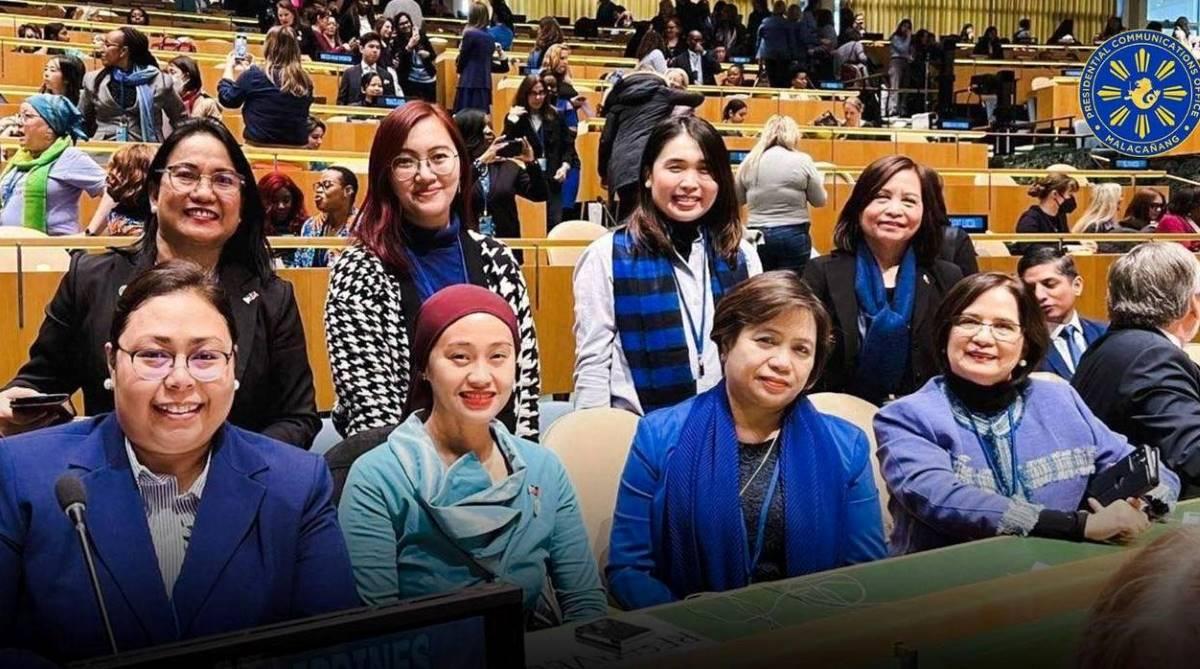Gov't to push for digital media literacy campaign vs. fake news

The government will spearhead a nationwide digital media literacy drive this year in a bid to teach the vulnerable sector “to be discerning of the truth” in social media, a Presidential Communications Office (PCO) official said.
In a side event to the 67th Session of the United Nations Commission on the Status of Women in New York on Friday, PCO Undersecretary Cherbett Karen Maralit said that Congress has tasked the PCO to address the growing concern on misinformation and disinformation, especially in the digital landscape.
“Backed by the budgetary support from the Philippine Congress and its confidence in the leadership of the PCO, we took the opportunity to develop mechanisms through which we can bring the online experiences of females of all ages into focus,” she said.
Pointing out that the rights of women and girls “continue to be undermined by disinformation and misinformation” at this time, she said that the PCO would uphold their rights and welfare through the digital media literacy campaign that will focus on the most vulnerable communities.
“Taking a context-based and factual grassroots approach, we intend to reach out to and equip these communities with knowledge and skills and tools that will enable them to be discerning of the truth as they engage in various social media channels and platforms,” Maralit added.
She explained a two-fold path involving the collaboration by PCO with the private sector and stakeholders of the broadcast industry to establish effective mechanisms against fake news.
The PCO itself will also guide the public in being able to understand and identify false, incomplete, or inaccurate information.
She said the office aims to achieve this with both sensitivity, balance, and respect for constitutional rights.
“We will work to improve the citizenry’s ability to think critically and analyze information. The first step towards this end is identifying reliable and credible sources of information,” Maralit said.
She said a study will be conducted this month in the Philippines to refine the target communities where media literacy is most needed; determine the social media platforms through which these communities are most susceptible to fake news; and identify the contents and topics on which these misinformation and disinformation focus.
The study also targets to identify the profiles of fake news peddlers; understand the influences that open these communities to deceptions; and understand the practices and habits of the target communities that create the opportunities for exposure to disinformation and misinformation.
The PCO will then conduct the media literacy campaign once the results of the study are gathered expectedly by mid-year.
By the end of the year, Maralit said the PCO will close the campaign with a media literacy summit, where speakers from Facebook, Google, and the Philippine Commission on Women, among others, will be invited.
Maralit also discussed several challenges in integrating Media and Information Literacy (MIL) in the basic education curriculum, such as the misconception about the MIL course as an educational technology-related subject, the lack of training for MIL teachers, and the need to consider MIL as a core subject by tertiary education institutions.
She said measures seeking to institutionalize the effort of the Department of Education to include MIL as a core subject in the current curriculum of basic and secondary education is being pushed in Congress. —Giselle Ombay/KG, GMA Integrated News




